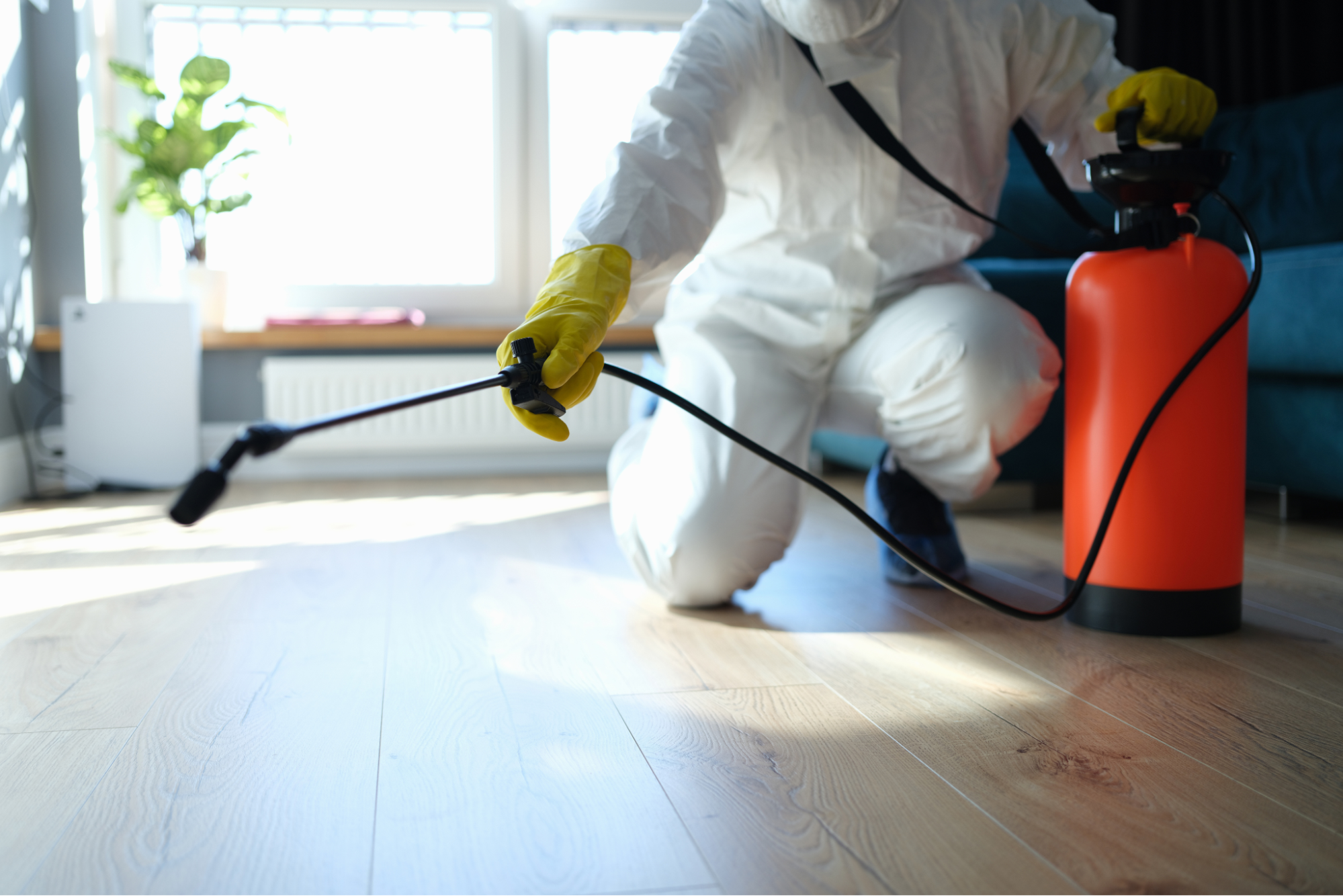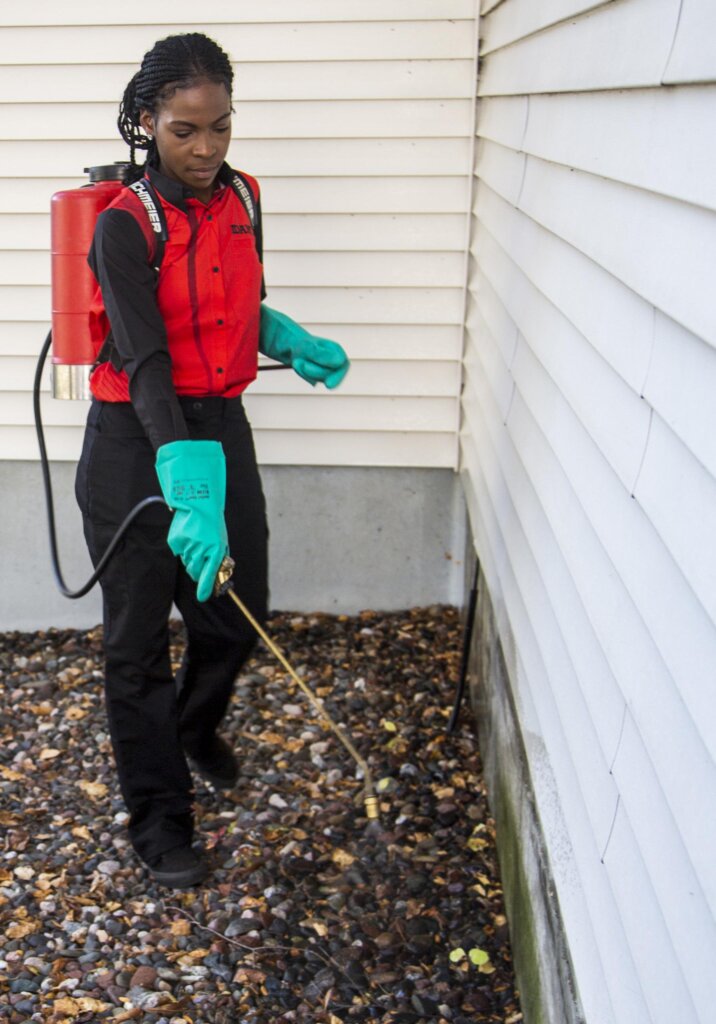Exploring Various Methods and Strategies for Comprehensive Parasite Control in Residential Spaces
The landscape of insect control in property rooms has actually progressed significantly, demanding a thorough understanding of different methods that can be used for effective monitoring. Conventional chemical therapies, while effective, are increasingly being enhanced by eco-friendly alternatives and Integrated Bug Administration (IPM) strategies. Home owners need to take into consideration preventative procedures, such as routine tracking and precise parasite identification, to maintain a healthy atmosphere. The genuine challenge exists in striking an equilibrium between efficacy and security-- an exploration that reveals the subtleties of each method and its effects for sustainable living.
Comprehending Insect Control Fundamentals
Efficient insect control is important for maintaining a healthy and safe living atmosphere. Comprehending the fundamentals of insect control entails acknowledging the sorts of bugs that commonly attack residential rooms, the potential threats they pose, and the relevance of preventative actions. Typical family parasites consist of rats, bugs, and various other undesirable creatures that can jeopardize hygiene, damages building, and cause wellness problems.
An essential primary step in insect control is determining the details parasites present. This can involve examining areas such as cooking areas, cellars, and attic rooms, where parasites are most likely to grow. Once identified, it is essential to recognize their practices, reproducing cycles, and preferred environments, which can notify proper control strategies.
Preventive procedures are basic to effective bug monitoring. These include securing access factors, preserving sanitation, and decreasing mess to remove hiding spots. Additionally, correct food storage space and waste management can considerably decrease the allure of a home for insects.

Conventional Chemical Treatments
Amongst the various insect control methods, typical chemical therapies have actually long been used to attend to invasions in residential areas. These treatments typically involve the application of chemical pesticides created to eliminate bugs such as pests, rodents, and various other unwanted organisms. The effectiveness of these chemicals can differ, depending upon the kind of pest, the formula of the chemical, and the approach of application.
Typical courses of standard chemical therapies include pesticides, herbicides, rodenticides, and fungicides, each tailored to combat specific parasites. Pesticides, for instance, might target roaches, ants, or termites, while rodenticides are especially formulated to control rodent populaces. These chemicals are often available in numerous types, consisting of lures, sprays, and granules, enabling home owners adaptability in application.
In spite of their efficiency, typical chemical treatments increase concerns regarding potential toxicity to human beings, pets, and helpful organisms in the setting. Consequently, it is critical for house owners to very carefully comply with application standards and safety and security preventative measures to minimize dangers. Integrated Bug Management (IPM) methods can complement these treatments, making certain a more all natural method to pest control while making best use of efficacy and safety and security in domestic setups.
Eco-Friendly Parasite Control Options
Green insect control options are acquiring appeal as house owners look for safer and more lasting choices to conventional chemical treatments. These techniques prioritize the health of both locals and the environment, minimizing the effect of parasite control methods.
One widely adopted eco-friendly method is using all-natural repellents stemmed from important oils, such as peppermint and citronella. These oils not just deter parasites yet additionally give enjoyable scents for interior areas. Moreover, diatomaceous planet, a powder made from fossilized algae, serves as a natural pesticide by harming the exoskeletons of pests upon call, causing dehydration.
One more efficient technique involves advertising biodiversity in yards and lawns. Introducing advantageous pests, such as lacewings and ladybugs, can normally manage pest populations (rat removal chicago Illinois). In addition, using catches made from eco-friendly products can assist record and eliminate insects without causing damage to the ecosystem
Routine upkeep, such as sealing entry points and appropriate sanitation, additional improves the performance of green parasite control. House owners can take proactive measures to stop invasions, making sure a much more sustainable living environment while efficiently handling pest-related concerns.
Integrated Parasite Monitoring Approaches
Implementing integrated insect management (IPM) approaches provides a comprehensive method to pest control that stresses prevention and lasting services. IPM incorporates multiple tactics, focusing on understanding parasite actions, life cycles, and eco-friendly dynamics to lessen bug populaces properly. This complex method prioritizes non-chemical approaches, such as organic control, habitat manipulation, and social practices, to lower dependence on chemicals.
A fundamental facet of IPM is checking and recognizing pests properly. When intervention is required, this includes regular inspections and the establishment of action limits to establish. By understanding the particular bugs affecting domestic atmospheres, targeted treatments can be used, minimizing the probability of unnecessary pesticide applications.
Another essential element of IPM is informing property owners about the value of hygiene and upkeep methods. By promoting an environment that prevents insect infestations-- such as sealing access points and handling wetness-- locals can considerably minimize the risk of parasite problems. Furthermore, when chemical controls are considered required, moved here IPM supporters for the usage of the least hazardous choices to reduce environmental impact. Through these methods, IPM not only addresses existing pest issues yet also promotes sustainable practices that advertise lasting bug monitoring success.
Preventative Actions for Residence
To fend off prospective pest problems, homeowners need to take on an aggressive method that highlights preventative steps. This starts with keeping a organized and tidy home, as weblink mess and food particles bring in pests. rat removal chicago Illinois. Regularly vacuuming, sweeping, and wiping down surface areas can dramatically lower the risk of infestations
Furthermore, sealing entrance points is crucial. Homeowners must examine home windows, doors, and structure fractures for voids that can allow bugs accessibility to the home. Utilizing caulk and weather condition removing can efficiently block these entrances.
Appropriate food storage space is one more crucial step. Saving food in impermeable containers and quickly cleansing up spills or crumbs helps deter rodents and bugs.
In addition, taking care of outdoor environments can avoid insects from trespassing on residential rooms. Homeowners ought to make sure that water drainage systems are working well, and landscape design is maintained tidy. Cutting trees and bushes far from your house and getting rid of standing water can additionally diminish bug habitats.

Final Thought
In conclusion, effective parasite control in household spaces necessitates a diverse method that incorporates conventional chemical treatments with green techniques and Integrated Parasite Administration techniques. By prioritizing preventative actions, such as preserving tidiness and securing access points, homeowners can substantially reduce bug events.
Comprehending the fundamentals of pest control includes acknowledging the types of parasites that generally get into household areas, the possible risks they posture, and the significance of preventative steps.An important very first action in parasite control is determining the certain bugs existing. Integrated Parasite Management (IPM) techniques can match these therapies, ensuring a much more all natural strategy to pest control while optimizing efficiency and safety and security in residential settings.
Implementing incorporated insect monitoring (IPM) strategies offers an extensive strategy to pest control that stresses prevention visit their website and long-lasting services.In verdict, efficient pest control in residential rooms requires a multifaceted approach that integrates conventional chemical treatments with green practices and Integrated Pest Monitoring strategies.